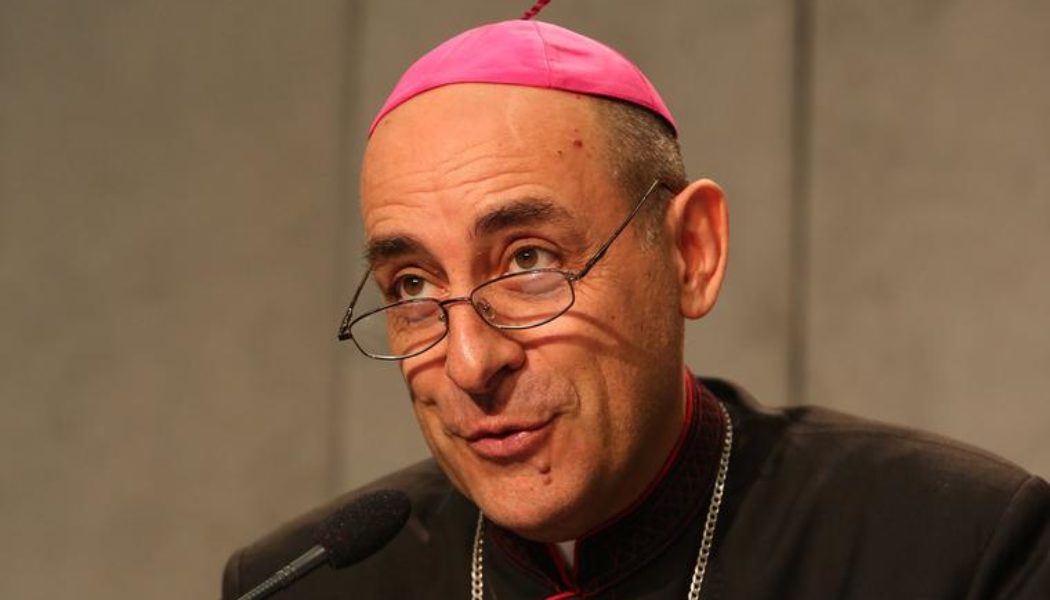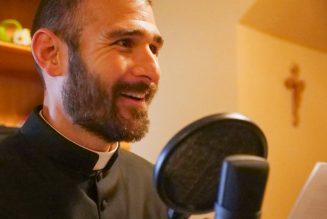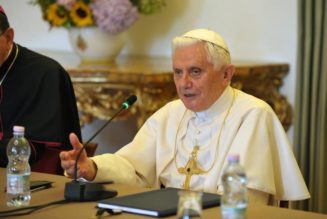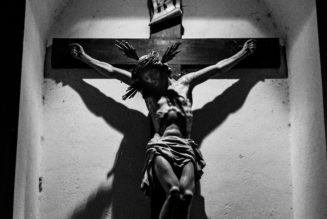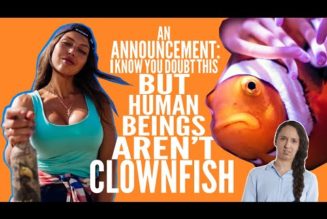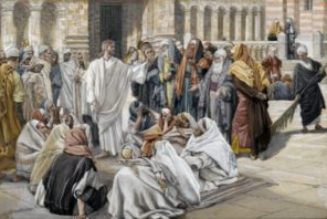
On July 1, Pope Francis tapped his close collaborator, Archbishop Victor Manuel “Tucho” Fernandez, to be the next prefect of the Dicastery for the Doctrine of the Faith (DDF). Just eight days later, the Pope announced at his July 9 Sunday Angelus that his longtime ghostwriter and theological adviser would also be among a group of new cardinals to be created at an upcoming September consistory.
In between these two significant developments in the ecclesial career of the Argentinian theologian, who turns 61 later this month, Cardinal-elect Fernandez has had a lot to say.
The Argentinian prelate has executed something of a media blitz, conducting several wide-ranging interviews with various entities, Catholic and secular, such as Spain-based InfoVaticana (July 5), the U.S. Catholic website Crux (July 7), the Argentinian newspaper Clarin (July 8) and the Holy See’s own Vatican News (July 8). Cardinal-elect Fernández has also provided comment to the Register, and has taken to his own personal social-media pages to both share his perspective about his appointment — and to also address critics.
In the process, “Tucho,” as the Argentinian prelate signs his correspondences, has provided some clarity about how he will lead the DDF, as well as his broader theological commitments and even specific views on matters like blessings of same-sex relations and inculturation — but also clarity about where ambiguities about his thought and mandate still remain prominent, and therefore where successive media inquiries and theological queries may need to go.
A ‘Different’ DDF — but How?
In the rather unusual personal letter sent from Pope Francis to Archbishop Fernández that accompanied the Vatican’s DDF announcement, the Pope makes a number of significant though somewhat undeveloped points about the task he is entrusting to his protégé.
But with no further clarification from the Vatican about some of these points, the chief interpreter of the letter has been the Argentinian theologian himself, who has said in his media appearances that the Pope told him that he would write the letter to “clarify the meaning of my mission” after it had already been discussed between the two in person (in fact, some have speculated that Archbishop Fernández “ghost wrote” the letter himself).
Connecting the dots between his various interviews, Archbishop Fernández has pushed a somewhat incomplete and even conflicted understanding of what his mandate is — and how it actually differs from prior understandings of the mission and purpose of one of the Curia’s oldest offices.
For instance, when asked by InfoVaticana about the Pope’s critique of the “immoral methods” used by the DDF “in other times,” when “rather than promoting theological knowledge, possible doctrinal errors were pursued,” Archbishop Fernández explicitly connected this problematic approach to the “tortures and deaths” of dissident theologians, presumably in the period when the DDF was known as the Inquisition.
Therefore, the Pope’s following line that what he expects from Archbishop Fernández at the helm of the DDF is “certainly something very different” seems to be in contrast to these methods of coercive violence from centuries ago.
However, at other times, Cardinal-elect Fernández has attempted to imply that the “different” approach expected by the Pope should be contrasted with far more recent and far less apparently “immoral” practices of the DDF.
For instance, in his interview with Crux, he noted that his appointment should not be seen as a reproach of his immediate predecessor, Cardinal Luis Ladaria, because the Spaniard did not, in fact, “condemn anyone” and that his predecessor’s years as prefect have already “produced a change.” But citing the need for continued transformation of the DDF, Archbishop Fernández noted that Cardinal Ladaria himself had previously told him that his work was predominantly focused on matters of “discipline” — and less so on promoting “the deepening of thought” and theology, which he says is what the Pope has tasked him to do.
Taken together, the cardinal-elect’s statements could be seen as implying some kind of connection between the “immoral methods” of the Inquisition years and the DDF’s ongoing role providing discipline and correction of wayward Catholic theologians and clerics — or, at the very least, his remarks could continue to give cover to commentators who would like to advance this idea.
It’s a strange juxtaposition, because as the archbishop’s own words suggest, Cardinal Ladaria was able to carry out a role that was primarily disciplinary while at the same time not being unnecessarily condemnatory.
Perhaps more significantly, it suggests an understanding of the relationship between doctrinal disciple and evangelization that differs from the Vatican line since the Second Vatican Council.
As has already been pointed out at the Register, Pope Paul VI emphasized 50 years ago that the DDF’s role of defending the faith “is now better served” by not only “gently calling” those who err back to the truth but also by giving new strength to “heralds of the Gospel.” And in the new apostolic constitution he promulgated in March 2022, Pope Francis himself underscored that the DDF’s mission — and new place in the curial hierarchy beneath the newly established Dicastery for Evangelization — still includes working “to ensure that errors and dangerous teaching circulating among Christian people do not go without suitable rebuttal.”
In his remarks to Vatican News, Cardinal-elect Fernández clarified that safeguarding the faith does not exclude “vigilance,” so long as it is subordinate to the need to allow the doctrine of the faith to “grow in its understanding” — again, a statement that can be reconciled with the reforms of the DDF in the post-conciliar era.
But in none of the aforementioned interviews did Archbishops Fernández place his DDF mandate in the context of continuity with this broader, already ongoing shift of emphasis. Instead, he told Crux that Pope Francis’ letter prompted messages to him from theologians who considered it a major “turning point” in the DDF’s mission, giving the impression that he understands his mandate as something categorically different than what’s come before — not merely different from the practices of the Inquisition era, but from those of his most recent predecessors Cardinal Ladaria, Cardinal Gerhard Müller, Cardinal William Levada and then-Cardinal Joseph Ratzinger.
As a result, the true nature of the change he intends to bring about is ambiguous — especially when some of the key ways he has described his mandate, such as promoting “a theology orientated toward evangelization,” as he told Clarin, are not obviously inconsistent with how previous DDF heads have seen the relationship between doctrine and proclamation, unless he understands evangelization itself differently.
In fact, one passage of his interview with Vatican News, in which he said that “no religious doctrine has ever changed the world unless there has been an event of faith, an encounter that re-orients life,” was shared by some on social media as if it were a novel approach, previously unheard of from a DDF head. In fact, it was a restatement of Benedict XVI’s teaching in Deus Caritas Est that Christianity isn’t the product of a lofty idea, but a personal encounter, which Cardinal-elect Fernández had been asked about by the reporter. So it cannot be that a recognition of the “primacy of encounter” is what distinguishes the new DDF head’s approach — so what is it?
Cardinal-elect Fernández told Clarin that he will not “break anything or start from scratch.” But he also informed InfoVaticana that, à la Frank Sinatra, he will do his job as DDF head “my way.” What exactly his way looks like and how it’s “different” remains unclear, which will only allow concerns over the new doctrine head’s approach to fester.
Questions About Doctrine and Authority
There are some aspects of how Cardinal-elect Fernández sees his task, however, that he has been more explicit about. For instance, he told Crux that he takes seriously his appointed task of ensuring “that the documents of the dicastery and those of others ‘accept the recent magisterium,’” meaning by this those authoritative teachings of Pope Francis.
This was “essential for the internal coherence of thought in the Roman Curia,” the Argentinian prelate said, “because it can happen that answers are given to certain theological issues without accepting what Francis has said that is new on those issues.” It isn’t enough, he added, to simply use a line from the Pope; people must be “transfigured with his criteria,” especially in moral and pastoral theology.
However, Cardinal-elect Fernández’s insistence on enforcing a kind of “internal coherence” among Vatican dicasteries (and “others”) may strike some as inconsistent with some of his other soundings on diversity in doctrinal expressions and theological dialogue — not to mention his previously mentioned aversion to “discipline.”
Additionally, his comment to Crux that “not everything [in theology] should be closed” by the Church, although made in reference to a 16th-century theological controversy that was, in fact, not resolved by Pope Clement VIII, cannot help but be heard in the present ecclesial context, within which questions once thought to be settled magisterially — such as the immorality of contraceptive sex, the existence of moral absolutes or the impossibility of the ordination of women — are being vigorously revisited by some.
It may be confusing to some Catholics how Cardinal-elect Fernández’s understanding of doctrine and authority can call for such an aggressive enforcement of Pope Francis’ magisterial teaching while apparently allowing for the possible repudiation — not development — of the magisterial teachings of, for instance, recent popes like Sts. Paul VI and John Paul II.
In fact, the cardinal-elect seems willing to extend some allowances to possible heresies that he doesn’t to those who are not sufficiently transfigured by the criteria of the Pope.
Regarding the German Synodal Way, he commented to InfoVaticana that he didn’t think “there isn’t something good” in it and that wayward thought must be responded to by addressing “certain legitimate intentions that might lie behind the errors” that deepens theological understanding. Does the new DDF head intend to offer the same listening ear to those whom he finds insufficiently onboard with the Pope’s teaching — especially when their hesitancies are motivated by uncertainty over how the new doctrine is consistent with or deepens what came before it?
Same-Sex Blessings and Marriage
One particular area where Cardinal-elect Fernández’s understanding of doctrine, and how it can and cannot develop, was seemingly broached was on the issue of “blessings” for same-sex relationships, which he addressed in three separate interviews.
He told InfoVaticana first that marriage can only be understand as one thing: “that stable union of two beings as different as male and female, who in that difference are capable of generating new life. There is nothing that can be compared to that and using that name to express something else is not good or correct.”
Cardinal-elect Fernández, however, went on to say that while “the greatest care must be taken to avoid rites or blessings that could feed this confusion,” a blessing given “in such a way that it does not cause that confusion” would have to be analyzed and possibly confirmed as legitimate. It was not expanded upon how a blessing of a relationship grounded in what the Church teaches are immoral sexual relations could possibly not contribute to confusion, though perhaps the new DDF head was referring to blessing chaste same-sex friendships.
In response to a question from Crux about the Church’s teaching on homosexuality and marriage, Cardinal-elect Fernández was even more unclear. He stated that “it sounds a bit vain to believe that one has everything clear on these issues,” because not “everything is mathematics” on these issues, which involve “the exciting mystery of human lives.” He then seemed to imply that the Church’s teaching in these areas were “particulars” that risked getting in the way of essentials, before concluding that “the doctrine of the Gospel does not change, but our understanding of it does change, and changes a lot.”
Finally, in his interview with Clarin, Cardinal-elect Fernández criticized the DDF’s 2021 guidance that stated that same-sex blessings were impossible because “God cannot and does not bless sin” as lacking “the smell of Francisco.”
“I think that without contradicting what that document says, it would not be wrong to rethink it in the light of everything that Francisco has taught us,” suggesting that the issue would be revisited by the DDF under his watch and that the 2021 guidance was somehow inconsistent with the magisterium of Pope Francis.
Cardinal-elect Fernández’s comments could possibly be interpreted as the need to maintain the integrity of the Church’s teaching on sexual ethics while using a more loving and welcoming tone — or they could be viewed as an openness to using theological wordsmithing and a particular sense of development to allow for a “pastoral” shift on the issue that allows for same-sex blessings in practice.
Again, like several other matters related to his new role as DDF heads, it remains unclear even after a week of media interviews what exactly Cardinal-elect Fernández thinks.
